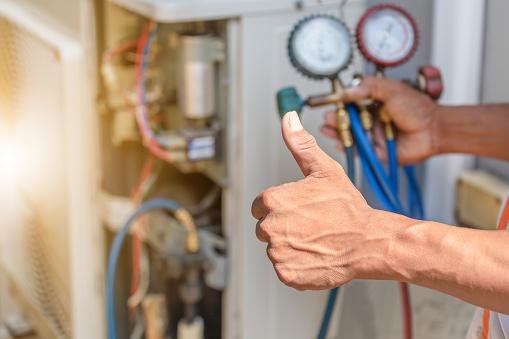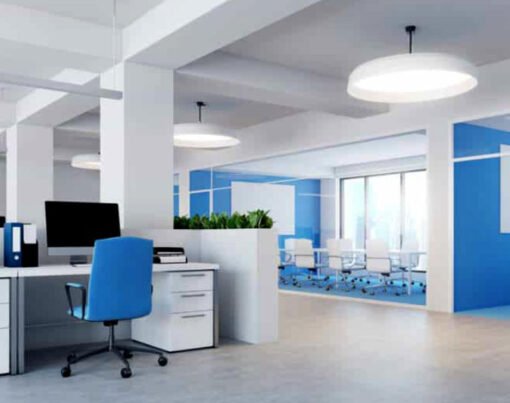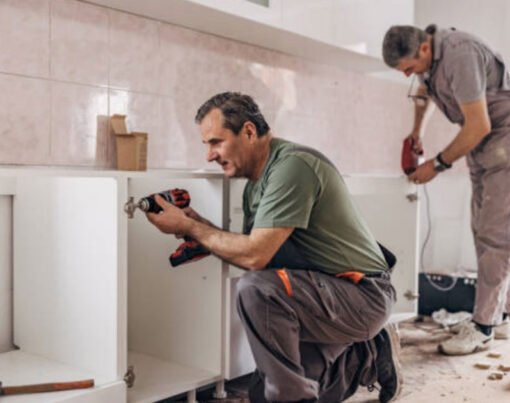An HVAC system is an essential system in any rental home. Keeping it functional is essential as it is integral to the home’s heating, ventilation, and air conditioning. In other words, if it is inefficient, it could make your rental property a lot less conducive. Like your house’s plumbing and electric wiring, it is a system you cannot compromise on. According to real estate law, your tenants could even sue you if you leave repairs unattended.
What are the most common HVAC problems? Would you schedule maintenance for your systems to keep them functioning correctly? Stick around till the end of this article. We’ll highlight the four types of HVAC problems in rental homes below:
Table of Contents
4 Types of HVAC Problems in Rental Homes
1. Inefficient Heating or Cooling
One of the most common problems with an HVAC system is when it doesn’t heat or cool the room properly. It is often one of the first signs of trouble and can be a nuisance to your renters. If you’re getting complaints about your cooling or heating system working poorly, there are two simple fixes you could try.
Obstructions around the vents can make it harder for your HVAC system to recycle the air in the room. Thus, you should first declutter your space and remove any furniture or boxes acting as a barricade.
If that doesn’t work, you should look at your filter next. HVAC systems have filters that collect dirt and dust. However, over time they can build up excessive debris, which clogs the filters and makes it harder for your system to work efficiently. You could even educate your tenants on how to change an HVAC filter. Ideally, replacing these filters every four months is best to keep your air clean and your system running.
2. Leaking Ducts
Leaking ducts is another nuisance landlords can expect from their HVAC system. Besides making your heating and cooling inefficient, dirty filters can also clog your ductwork. As a result, tenants might notice water dripping from ducts into the room. Alternatively, pests and rodents can also find their way into these spaces and make tiny holes that enlarge and leak.
To prevent leaky ducts, inspect them regularly to ensure they’re pest free. Also, remember to replace your dirty filters and clean them when needed.
3. Faulty Thermostat
Thermostat malfunctions are also common HVAC problems. It can be annoying when tenants set the temperature they want, only to change suddenly. Constantly readjusting the room’s temperature means your HVAC system has to work harder to heat up or cool down the room, as the case may be. Besides erratic temperature changes, you might also notice unusual noises when the thermostat fails.
A faulty thermostat could be caused by rusting, leaking, or contaminated coolant. Whatever you suspect might be the problem, it’s always best to inspect the entire system to be sure.
4. Outdated HVAC System
Sometimes your HVAC system is simply faulty because it’s old. Despite the rise in build-to-rent models, most rental properties were once owned by people who lived there for several years. Although these homes might have undergone some rework, many maintain the original plumbing, wiring, and HVAC system.
For instance, if the house’s original owner lived there for ten years, and the next buyer lived there for another five without replacing the system, that makes it fifteen years. Using your rental for close to three bumps the age up to eighteen. Since the average life expectancy for an HVAC system is 10 – 20 years, it wouldn’t be unusual for you to start experiencing problems with its efficiency.
Thus, rather than spending money on repairs, replacing the system with a newer model might be worth it. In the long run, it would stop you from being penny wise, pound foolish.
Tips for Scheduling Maintenance in a Tenant-Occupied Rental Home
- Select the Right Contractor: Finding the right contractor can save you a lot of stress. Hire an HVAC system company with good reviews and a fair price to get the most of your money and air conditioning. But, of course, it’s always better when you have the assistance and expertise of a professional.
- Use a Checklist: The right contractor will certainly have a checklist for your HVAC system, but it doesn’t hurt to have yours too. For example, you can create a list of daily, weekly, or monthly maintenance activities to keep your heating and cooling system at its optimum.
- Outsource Maintenance: Staying on top of your HVAC systems maintenance can be challenging. Thus, it might be worth investing in a comprehensive property management service to ensure your rental is well-maintained. That way, you can spend more time expanding your portfolio while your system still receives the care it needs.
Conclusion
To ensure your tenants’ comfort and limit complaints, you should pay attention to your home’s HVAC system. While several things can go wrong with such a crucial component of your property, we highlighted the top 4 types of HVAC problems in rental homes in this article.
Thankfully regular maintenance can help you avoid most of these issues and keep your units comfortable all year. With the right maintenance team, a detailed checklist, and routine inspection, you can keep your system in good working condition for years.
Of course, if you need help staying on top of your HVAC system’s maintenance and repair, look to an expert. A professional property management company can perform vital duties on your behalf, saving you money and time.










